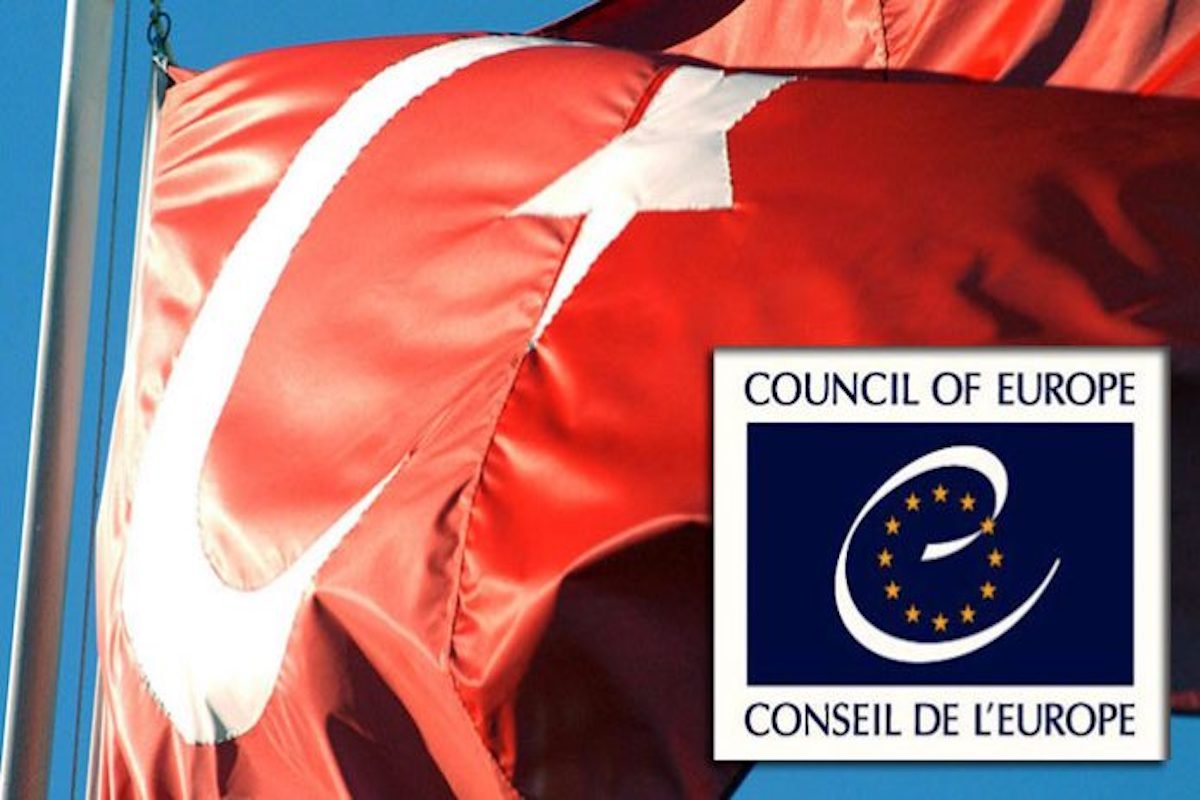Experts from the Council of Europe (CoE) visited the Turkish capital of Ankara and held discussions with officials from Turkey’s Justice Ministry on Thursday and Friday on issues relating to freedom of expression and the fight against terrorism in the country.
In a press release from its website on Friday, the CoE said the two parties, part of a working group, discussed issues related to Turkey’s implementation of the European Convention on Human Rights (ECHR) and in particular to the case law of the European Court of Human Rights (ECtHR) on freedom of expression.
The CoE officials also met with members of a newly created commission in charge of reviewing measures adopted under state of emergency decree-laws and exchanged views, including on the dismissal of public officials and the closure of media outlets.
Underlining that pretrial detentions in Turkey during the state of emergency should be in full accordance with the case law of the ECtHR, the CoE said deprivation of liberty should be a measure of last resort.
Turkey and the CoE established a working group in early 2015 upon the initiative of the secretary-general of the Council of Europe and the minister of justice as part of Turkey’s action plan to prevent violations of the ECHR.
The working group comprises representatives of the secretary-general and officials from the Ministry of Justice. Judges from the Supreme Court of Appeals and the Constitutional Court also took part on this occasion.
Turkey has been at the center of criticism among its Western allies due to violations of human rights, freedom of expression and a government crackdown on critics, especially after a failed coup last year.
Turkey is the biggest jailer of journalists in the world. The most recent figures documented by the Stockholm Center for Freedom (SCF) has showed that 283 journalists and media workers are now in jails as of August 18, 2017, most in pre-trial detention languishing in notorious Turkish prisons without even a conviction. Of those in Turkish prisons, 258 are arrested pending trial, only 25 journalists remain convicted and serving time in Turkish prisons. An outstanding detention warrants remain for 135 journalists who live in exile or remain at large in Turkey.
Detaining tens of thousands of people over alleged links to the movement, the government also closed down more than 180 media outlets after the controversial coup attempt. Turkey’s Contemporary Journalists’ Association (ÇGD) recently announced that more than 900 press cards were cancelled.
Turkey survived a controversial military coup attempt on July 15 that killed 249 people. Immediately after the putsch, the Justice and Development Party (AKP) government along with Turkey’s autocratic President Recep Tayyip Erdoğan pinned the blame on the Gülen movement.
Fethullah Gülen, who inspired the movement, strongly denied having any role in the failed coup and called for an international investigation into it, but President Erdoğan — calling the coup attempt “a gift from God” — and the government initiated a widespread purge aimed at cleansing sympathizers of the movement from within state institutions, dehumanizing its popular figures and putting them in custody.
Turkey has suspended or dismissed more than 150,000 judges, teachers, police and civil servants since July 15. Nearly 125,000 were detained and more than 58,000 arrested over alleged links to the failed coup. (SCF with turkishminute.com)















